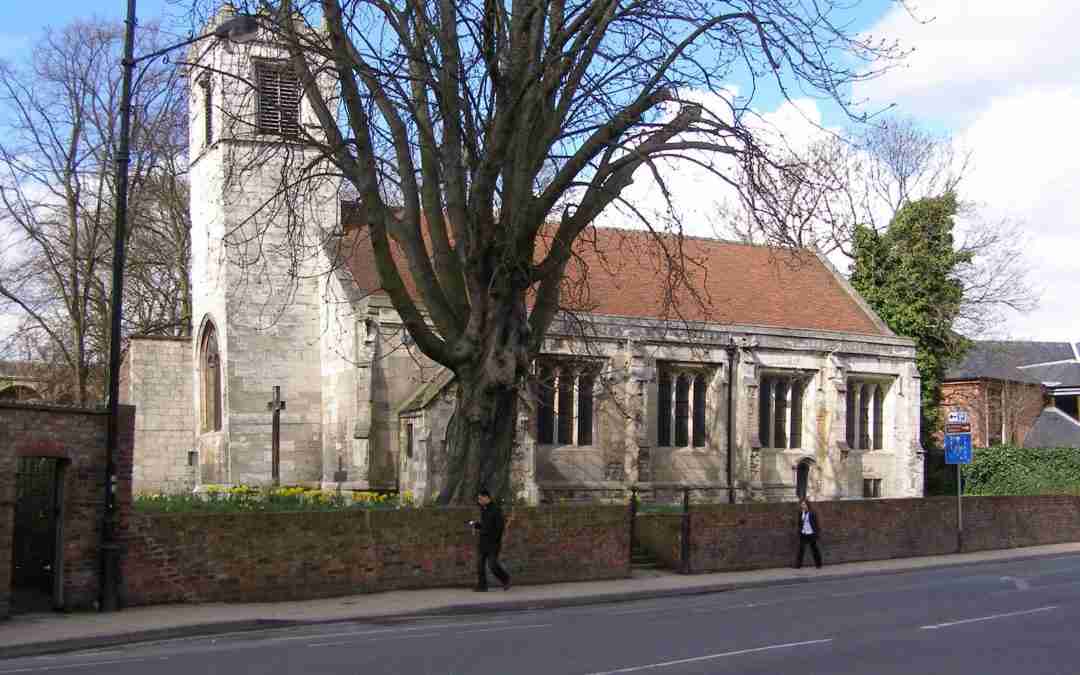As far as I can ascertain, the Coates family lived in Yorkshire for more than 200 years. That changed somewhat in the early 19th century.“
Robert Coates, my fourth great-grandfather, was born in 1781 and baptised in St Cuthbert’s Church, in the Peasholme Green area of York. The church remains standing today and is a Grade I listed building – you can see it at the top of this page.
However, in 1811, it seems that Robert married Janet Tarbot in Coldstream, Berwickshire on 22nd June. This event came about eight years after the death of Robert’s father (also called Robert) and research hasn’t established why he swapped North Yorkshire for South-West Scotland.
What we can be confident of is that within 12 years, Robert and Janet had four sons – Robert junior, Adam, James and Thomas – and settled in Coldstream. The Scottish Census of 1851 lists Robert, then aged 73 as a “Pauper Labourer” and indicates that his home was shared with Janet, their eldest son Robert and his wife, Isabella and their six children. Robert junior was listed as a “Quarryman”, so had probably become the family’s breadwinner. Robert senior died the following year while Janet lived with her son and his family until passing away in 1872, aged 87.
The only record of James I have been able to find is of his baptism, in October 1820; it is likely that he died in infancy.
The harsh realities of life in Border Country saw Janet’s second son, Adam Coates, imprisoned on 17th February 1844, for the offence of stealing potatoes. A transcript of the Greenlaw Prison Register indicated that Adam had been taken there from a lockup in the nearby settlement of Duns. He was sober, but dirty and wearing clothes that were in a bad condition.
At the time of his arrest, Adam and his wife, Agnes, had a six-year-old daughter, Isabella and an infant son, Robert. The Prison Register noted that Adam was unemployed, which makes his incarceration all the more poignant when viewed through modern eyes.
Adam was tried on 28th March 1844 and sentenced to two months imprisonment. No allowance was made for the time he had already spent in Greenlaw, so he was not released until 28th May. The register notes that his behaviour there had been ‘tolerable’ and that he had ‘learned to read with difficulty’ whilst in custody.
The opening of coal mines in County Durham provided Adam and his family with an opportunity to restart their lives. Adam became a coalminer, as did his son, Robert. In 1860, Adam and Agnes had a third child, Thomas. By 1881, Thomas had moved out of the family home and was working as a labourer, but I know little more about him than that.
Adam remained in County Durham for the rest of his life. His wife, Agnes, passed away in 1871 and Adam died in Medomsley, a village close to the mining town of Consett, seven years later.
By heading south, Adam had actually emulated his youngest brother, Thomas, who by the age of 24 had moved to Sunderland, married Ann Marsh, who had grown up in Leeds and become a father for the first time. Thomas was my great-great-great grandfather and had found work as a Mariner. Thomas and Ann had eleven children, most of whom would leave Sunderland.
Three of his sons emigrated to Australia, one of his daughters went to Canada after marriage. His seventh child, Thomas junior, was less well-travelled given that he settled in Stockton-on-Tees, establishing what has become my own strong emotional connection to Teesside. We will learn more about him later on.
Three of Thomas senior’s children did not move further afield, for contrasting reasons. Daughters Sophia and Isabella married and had substantial families of their own. Thomas’ youngest child, Christopher, died at just five years of age.
Thomas Coates passed away in October 1881, aged 58.
